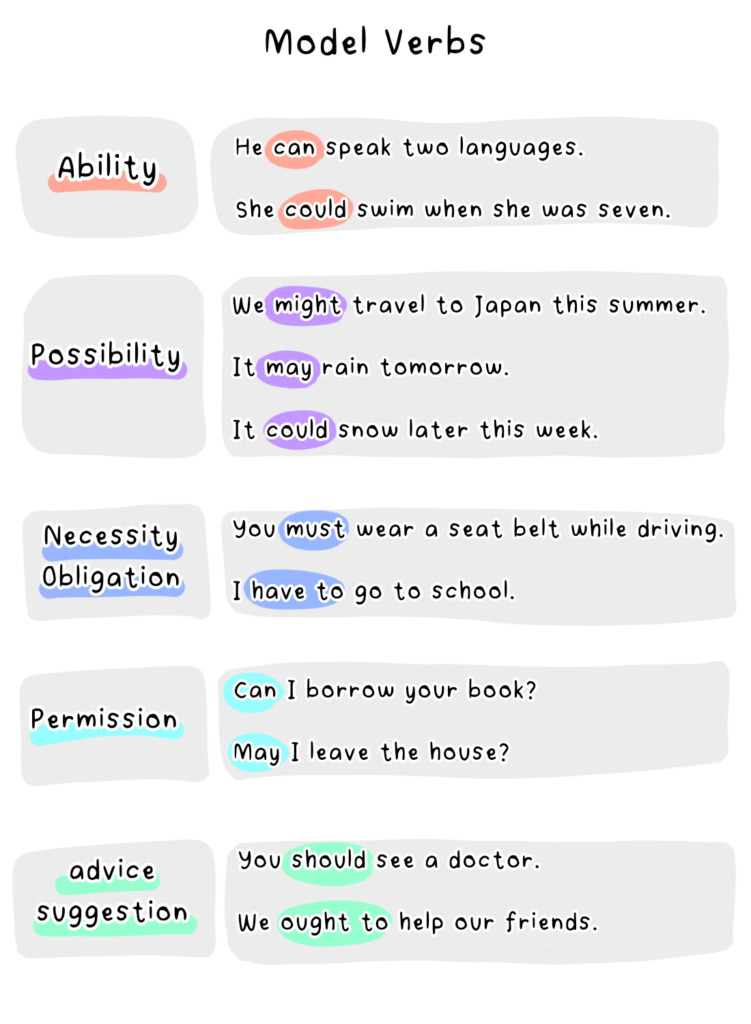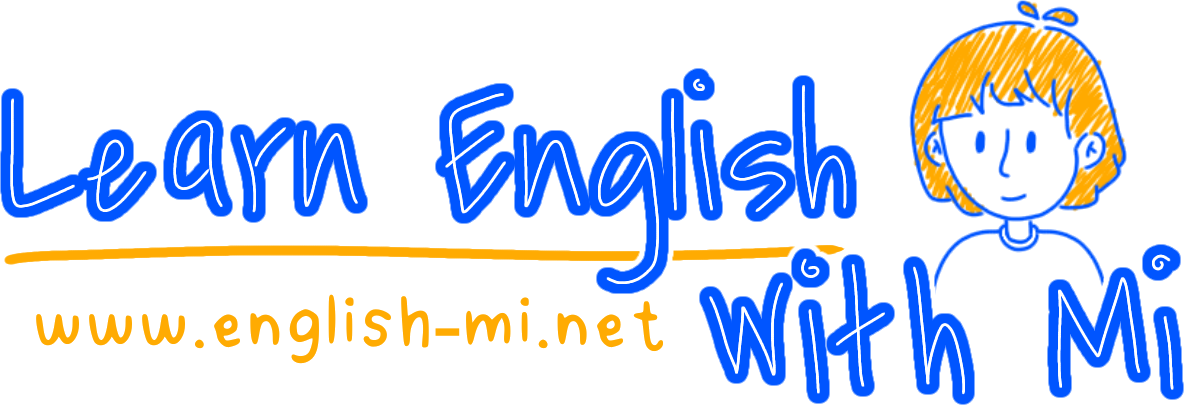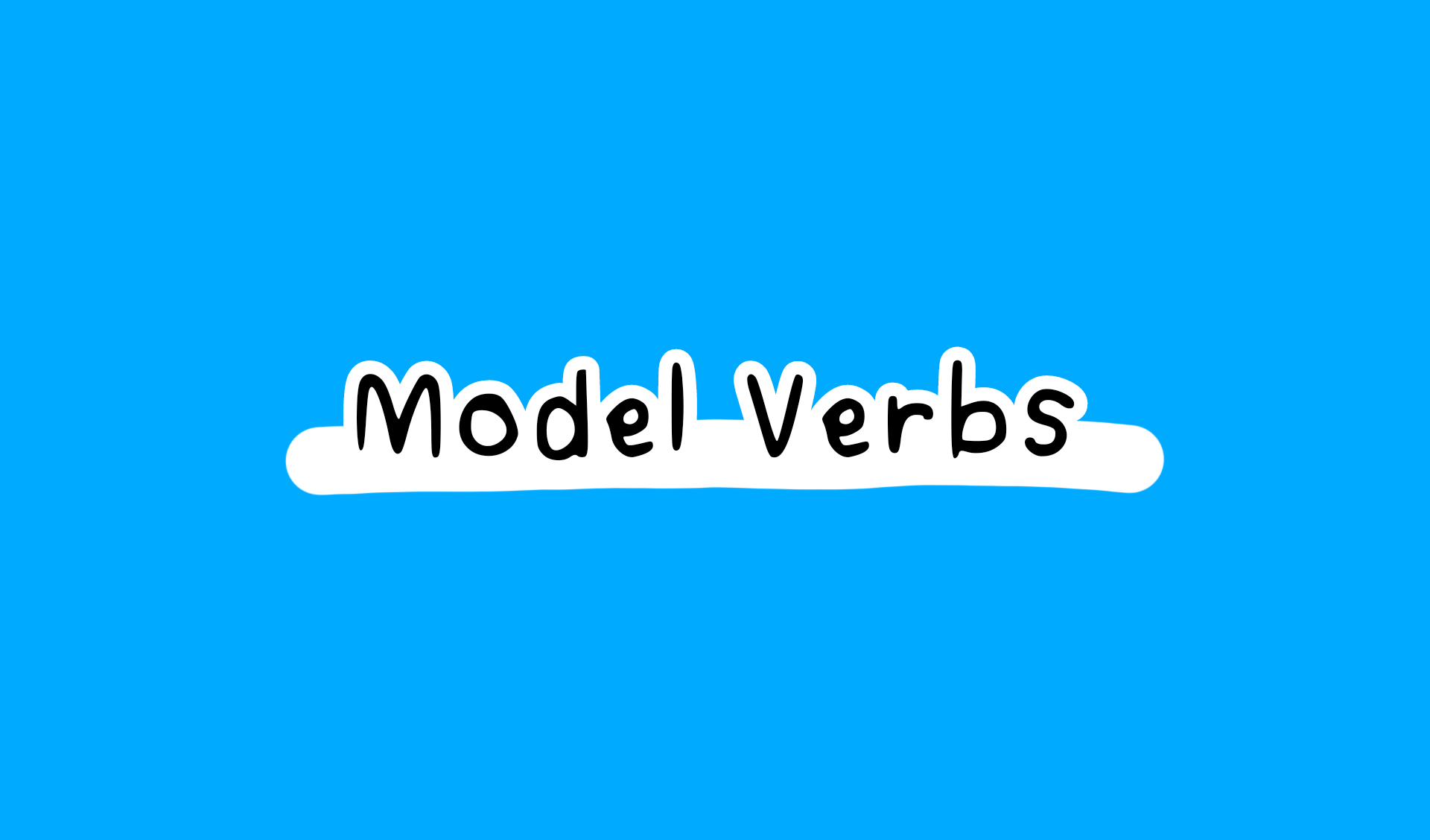Modal verbs are auxiliary verbs, used alongside the infinitive form of the main verb in a sentence. they express necessity, possibility, ability, permission, or obligation. learning how to use modal verbs can enhance both speaking and writing skills, playing a crucial role in English grammar, and help modifying the meaning of the main verb and provide additional information about the action.
Modal verbs of ability
1 – can / can’t
can is the most common modal verb for expressing capacity and ability in the present. while the negative form “can’t” shows inability.
I can dance.
He can speak two languages.
She can’t drive.
Lily can’t play the piano.
2 – could / couldn’t
used to express abilities in the past.
She could swim when she was seven.
I couldn’t understand you.
Modal verbs of possibility
1 – may
used to express a strong possibility.
It may rain tomorrow.
We may not buy this car.
2 – might
used to express a weaker possibility than “may”.
We might travel to Japan this summer.
She might not agree with your opinion
3 – could
express a general possibility or a hypothetical situation.
It could snow later this week.
Modal verbs of necessity / obligation
1 – must
indicates a strong obligation or necessity.
You must wear a seat belt while driving.
He must finish his report by tomorrow.
2 – have to
similar to “must”, but often indicates external obligation rather than personal necessity.
I have to go to school.
We have to attend the meeting.
You don’t have to come if you don’t want to.
Modal verbs of permission
1 – can
informally gives permission.
Can I borrow your book ?
You can go out after school.
He can’t park here.
2 – may
formal and polite way to ask for or give permission.
May I leave the house ?
You may not use your phone during class.
They may start the exam now.
Modal verbs of advise / suggestion
1 – should
express a strong recommendation or advice.
You should see a doctor.
We should eat more vegetables.
You shouldn’t miss breakfast.
2 – ought to
It conveys a strong recommendation, often implies a sense of duty.
You ought to apologize for your mistake.
We ought to help our friends
Modal verbs are auxiliary verbs that express modality, or the speaker’s attitude or opinion about the main verb, allowing them to convey nuances of meaning beyond just the action itself. They provide important shades of meaning related to ability, possibility, necessity, obligation, suggestion, advise, permission. Common examples of modal verbs include can, should, must, could, may, might, ought to, have to.


